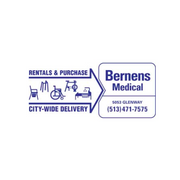How to Manage Urinary Incontinence

Living with urinary incontinence can be a challenging experience, and it affects millions of people worldwide. Fortunately, there are steps you can take to manage the condition and improve your quality of life. In addition to using the right health care supplies, here are some tips to help you manage incontinence.
5 Ways to Handle Urinary Incontinence
1. Adhere to a Fluid Intake Schedule
Drinking enough fluids is essential for your overall health, but too much can lead to frequent urination. To avoid this, create a fluid intake schedule that includes the recommended daily amount of water. Try to drink most of your fluids during the daytime and limit them at night. This can help you reduce the number of trips to the bathroom, especially when you're sleeping.
2. Establish a Toileting Schedule
Setting a toileting schedule can help you manage urinary incontinence. Plan to go to the bathroom at regular intervals, even if you don't feel the urge to urinate. This routine can help you train your bladder to hold urine for longer periods, reducing the number of trips to the bathroom. Additionally, make sure to empty your bladder before bedtime to avoid nighttime accidents. Having health care supplies like incontinence underwear can be beneficial in case you experience bedtime accidents.
3. Do Pelvic Floor Exercises
Pelvic floor exercises, also known as Kegels, strengthen the muscles that control urination. Doing these exercises regularly can help you manage urinary incontinence by improving your bladder control. To do Kegels, tighten your pelvic muscles as if you're trying to stop urine flow and hold for a few seconds. Release and repeat 10 times, three times a day.
4. Avoid Bladder Irritants
Certain foods and drinks can irritate the bladder, making incontinence worse. For example, caffeine, alcohol, and sugary drinks can trigger the condition. For certain individuals, it’s also best not to consume spicy foods, citrus fruits, and tomatoes. If you're not sure which foods or liquids you should avoid, talk to your doctor.
5. Address Constipation
Constipation can put pressure on the bladder and worsen urinary incontinence. To prevent this, make sure to eat a high-fiber diet, drink enough fluids, and exercise regularly. If constipation persists, talk to your doctor about possible treatments.
If you're looking for health care supplies to manage urinary incontinence, Bernens Medical & Pharmacy has you covered. They offer a wide range of products, including waterproof bed pads and incontinence underwear. Their caring and knowledgeable team can help you find the right items to meet your needs. Contact them today at (513) 471-7575 or visit their website to learn more.
About the Business
Have a question? Ask the experts!
Send your question

